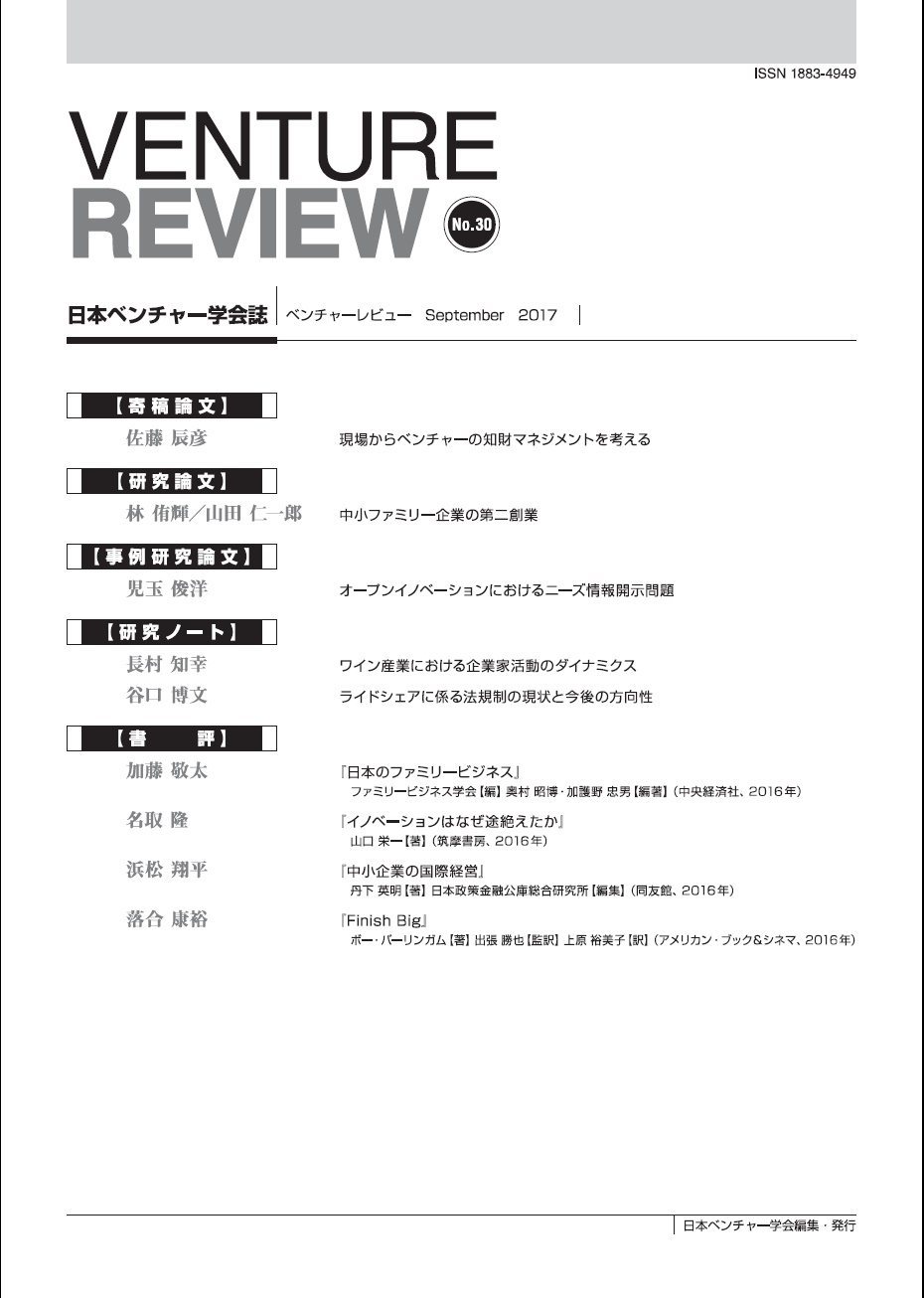Volume 37
Displaying 1-8 of 8 articles from this issue
- |<
- <
- 1
- >
- >|
Contribution Article
-
Article type: Contribution Article
Subject area: Economics, Business & Management
2021 Volume 37 Pages 3-9
Published: March 15, 2021
Released on J-STAGE: December 01, 2022
Download PDF (1679K)
Article
-
Article type: Article
Subject area: Economics, Business & Management
2021 Volume 37 Pages 11-24
Published: March 15, 2021
Released on J-STAGE: December 01, 2022
Download PDF (12063K)
Case Study
-
Article type: Case Study
Subject area: Economics, Business & Management
2021 Volume 37 Pages 25-39
Published: March 15, 2021
Released on J-STAGE: December 01, 2022
Download PDF (11275K) -
Article type: Case Study
Subject area: Economics, Business & Management
2021 Volume 37 Pages 41-55
Published: March 15, 2021
Released on J-STAGE: December 01, 2022
Download PDF (13759K) -
Article type: Case Study
Subject area: Economics, Business & Management
2021 Volume 37 Pages 57-72
Published: March 15, 2021
Released on J-STAGE: December 01, 2022
Download PDF (8975K)
Research Note
-
Article type: Research Note
Subject area: Economics, Business & Management
2021 Volume 37 Pages 73-77
Published: March 15, 2021
Released on J-STAGE: December 01, 2022
Download PDF (3517K) -
Article type: Research Note
Subject area: Economics, Business & Management
2021 Volume 37 Pages 79-83
Published: March 15, 2021
Released on J-STAGE: December 01, 2022
Download PDF (4534K)
Book Review
-
Article type: Book Review
Subject area: Economics, Business & Management
2021 Volume 37 Pages 85-87
Published: March 15, 2021
Released on J-STAGE: December 01, 2022
Download PDF (641K)
- |<
- <
- 1
- >
- >|
